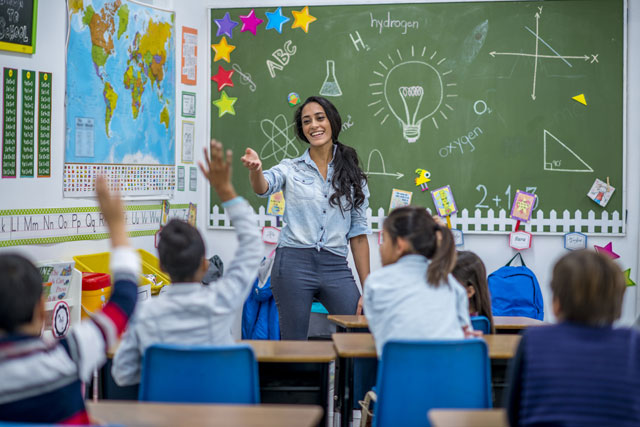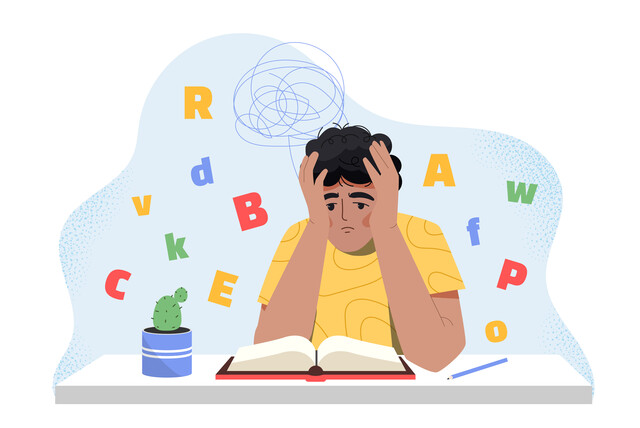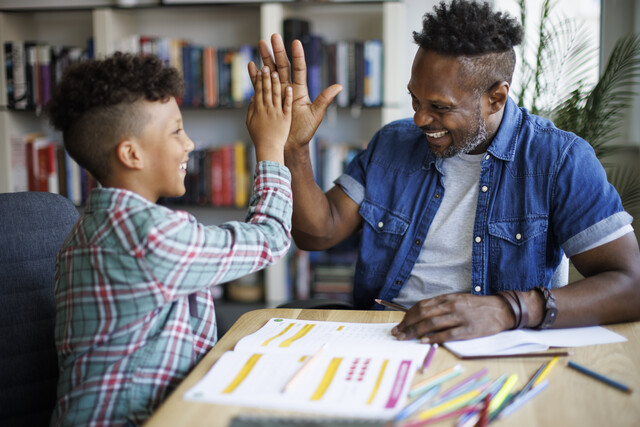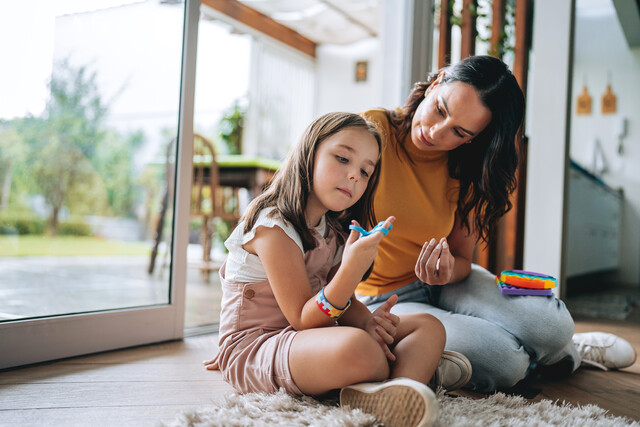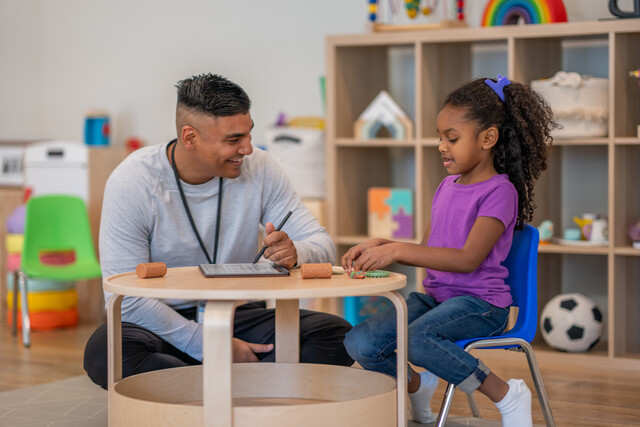Introduction
Numerous individuals throughout history have experienced learning difficulties and disabilities, even if those difficulties, at the time of their life, were not officially diagnosed as a learning disability, as they are today. However, throughout time, a glimpse back into history has determined that many famous individuals from around the world and experienced numerous learning issues caused by dyslexia, dyscalculia, and dysgraphia, which may or may not have been combined with signs and symptoms of ADHD. Their disabilities or difficulties did not stop any of them from pursuing their dreams or goals.
Notable People with Learning Disabilities
Some of those individuals are in the public eye today, including famous paleontologist Jack Horner. The American paleontologist, is one of the best-known, not only in the United States, but around the world. Horner is known for his focus and research regarding dinosaur growth. Jack Horner is also the role model for the main character in the dinosaur epic, "Jurassic Park" and its hero, Alan Grant.
While he is noted today for his discoveries, his dedication to dinosaur research, and as a curator of paleontology at the Museum of the Rockies, as well as adjunct curator of the National Museum of Natural History, Jack Horner flunked out of college not once, not twice, but seven times! He currently teaches an honors program at the Montana State University and holds an honorary doctorate at Pennsylvania State University.
Jack Horner was eventually diagnosed with dyslexia. In addition to the learning problem, he also experienced a severe lack of confidence. In his early school years, Horner experienced extreme difficulty in reading, writing, and mathematics. He avoided reading aloud in class, and received Ds and Fs in most of his subjects. However, despite his difficulty with these subjects, Jack Horner excelled in science, and with hands-on study and research.
Jay Leno, famous night talk show host, was also diagnosed with dyslexia, and he also struggled in school. In fact, in high school, one of his guidance counselors suggested that he drop out of school completely. However, Leno was determined to overcome the odds and persevered, graduating from high school, and attending Boston's Emerson College with a bachelor's degree in speech therapy. Today, Jay Leno not only spends much of his spare time working on cars and collecting them, but he promotes and supports learning camps and programs to support children with learning disabilities.
Another famous person in history is none other than Albert Einstein, considered the world's most famous genius. The Nobel Prize winner is believed to have experienced a learning disability, but popular opinion is that he did not have a learning disability, although he did, at times, express symptoms or signs of learning disabilities. This opinion is the result of Albert's not speaking until he was four years old, and the fact that he tended to avoid interacting with same- aged peers.
After intense research, biographers of Albert Einstein disproved that he was dyslexic, and that the concerns that he might have a learning disability stemmed from his extremely late entry into verbal communication. According to relatives of Einstein, this delayed speech could very well have simply been Einstein's withdrawal from social environments and interaction due to his preference to be alone.
By the time he was seven years old, Einstein's grades were excellent, even though he did fail to pass college exams the first time around. Today, it is likely that Albert Einstein, if examined and studied, might be diagnosed with a mild form of autism known as Asperger's syndrome.
We include this brief summary of Albert Einstein in this article to emphasize that just because a child is different, it doesn't mean that he or she has a learning disability. Learning differences are common in numerous individuals, and should not immediately serve as an alarm that a child is slow, delayed, or otherwise experiencing a learning disability.
Numerous presidents of the United States are believed to also have experienced learning difficulties, including President Woodrow Wilson, 28th president of the United States. The concern regarding Wilson stemmed from the fact that he failed to learn the alphabet until he was nine years old, and was unable to read until he reached the ripe old age of 12. At the time, learning disabilities were little understood and under diagnosed, and it is believed that he may have experienced dyslexia.
However, Woodrow Wilson not only eventually served as our 28th president, but also earned a Ph.D. from Johns Hopkins, and served as president of Princeton. Did he have a learning disability? The jury's out on that one, but again, it's important not to cast judgment or be in a rush to diagnose in many cases where children, teenagers, or adults don't learn at the same pace as everyone else.
In many cases, learning disabilities, or differences in learning, help to shape the character and attitudes of the people believed to have experienced them. For example, Alexander Graham Bell, inventor of the telephone, always struggled with traditional schooling environments, and it's believed that he might possibly have suffered from dyslexia, but such a learning disability certainly didn't stop him from pursuing his dreams.
Many historical researchers believe that Napoleon Bonaparte was a high- functioning autistic, based on his notorious hypersensitivity to touch, coupled with his strategic military genius.
Famous football player Terry Bradshaw, now an NFL host, was diagnosed in his early years with attention deficit hyperactivity disorder, or ADHD. Famous mystery writer Agatha Christie was diagnosed with dysgraphia, affecting the famous novelist's ability to understand or comprehend written words.
Actor Tom Cruise has spoken publicly about his learning disability, dyslexia, and has brought attention to the fact that anyone, from any socioeconomic status, can be diagnosed with the condition.
Famous inventor Thomas Edison was taken out of school by his mother at an early age and thereafter was home schooled. It is possible that today Edison would have been diagnosed with ADHD, as well as dyslexia.
Numerous other celebrities and notable people have been diagnosed with dyslexia, from Whoopi Goldberg, to Danny Glover, to John Lennon. Steve McQueen, famous actor of classic films, was diagnosed with a language-based learning disorder, while it is believed that George C. Scott, Academy Award-winning actor, likely had a learning disability such as ADD.
Sylvester Stallone, one of today's highest-paid actors and beloved for his role in Rocky, still struggles with dyslexia, and Robin Williams, beloved comedian and actor, was diagnosed with ADHD.
As you can see, it takes all kinds to make the world go round, and some of the most famous, intelligent, and beloved personalities in human history did experience some type of learning disability, whether it was given a label or not.
Conclusion
Some fear that being labeled with a learning disability provides a crutch or an excuse for many individuals to give up when it comes to their education or their goals. Others don't focus on the diagnosis or the label and continue to pursue their dreams and reach their goals. Dealing with a diagnosis of dyslexia, ADHD, or other learning disabilities or difficulties, is not always easy for children, teens, or adults, but in no way should such a diagnosis ever curtail a person's ability to aspire, dream, and reach for their goals.
Introduction
In this section, we'll focus on tips and strategies parents and teachers can utilize to help children deal with a learning disability. Communication is essential, as are listening skills. Parents should learn the difference between a visual, a kinesthetic, and an auditory learner and encourage approaches to learning, at home and at school, that cater to specific learning styles.
Tips and Strategies for Parents
It's not always easy to deal with difficulties in learning, especially before such difficulties are identified. Parents often feel a great deal of frustration and impatience with their children, but there are things you can do to help them cope and, when possible, overcome those difficulties.
Some of the most important tips for parents include:
- Support your child. Be an advocate for them. Be willing to persist in getting help for them in the classroom, or in their school.
- Become knowledgeable about learning disabilities, and your child's learning disability. Keep up with new treatments, educational techniques, and programs to support the learning disabled in your school, neighborhood, or county. Seek expert advice when it comes to solutions for your child, but it's up to you, the parent, to oversee your child's learning environment, and make sure that it focuses on providing that child with the learning tools that provide optimal development and growth.
- Maintain your perspective, meaning that just because your child has been diagnosed with a learning disability doesn't mean that your child won't be able to learn, develop, or grow like his or her peers. Whether your child has been diagnosed with dyslexia, dysgraphia, or any other type of learning disability, it's up to parents to give children the confidence and support they need when dealing with life's challenges and obstacles.
- Lead by example. Your child will look to you when it comes to dealing with challenges in life. Children often mimic the behavior of their parents, so if you rail against a school, the learning disability, or focus on your child's limitations, that child will do the same. Give your child the capability of meeting obstacles and challenges in life, rather than running from them, blaming others, or giving up.
Parents and teachers should work together to improve communication between the learning-disabled student and others. Parents need to take the time to focus on their child's emotional, mental, and educational growth, and not leave it up to the teachers at school. Everyone is responsible for improving and enhancing communication with students. Take the time to ask them how they're feeling, what they want to do and become, and really, truly listen to what they're saying.
Not all children or adults learn the same way. Some of us are visual learners, while others are aural or auditory learners. Some of us learn by touching and doing, while others tend to follow a more logical approach to learning and education.
Overall, seven learning styles are classified, and parents should take the time to determine what type of learners their children are, and then determine what type of learning style your child prefers.
Visual - Also known as a spatial learners, this type of learner prefers visual images, pictures, diagrams, maps, and so forth for learning. This type of learner does well with written materials, textbooks, and lesson boards.
Oral or auditory - This type of student learns better when information is spoken to them. Information can be imparted through lectures, vocal instruction, and audiotape. These learners also are very adept at using music and sound to enhance the learning process.
Verbal learners, also known as linguistic learners, prefer the use of words in vocalization, as well as in instruction; information or lessons are read out loud.
Social - Known as interpersonal learners, this type of student works best in groups, or when studying with other people. The group environment enhances their attention, focus, and learning processes.
Physical - Known as a kinesthetic learner, this person likes to use touch and sensation of the hands and body in learning environments. For example, this type of student does well in chemistry lab, or action-based learning scenarios.
Solitary - Also known as an intrapersonal learner, this type of student prefers self-directed studies, research, and prefers to do their assignments alone. This type of learner may learn very well in a library environment.
Through communication and interaction with your child, his or her teacher, and through your own observations, parents can identify the best approach to their child's instruction in school environments, and at home when helping a child complete homework assignments, projects, or reports.
How Parents Can Help Children Coping with a Learning Disability
Coping with learning disabilities requires an all-around approach to dealing with challenges and obstacles. Coping with learning disabilities requires action on the part of the student, the parent, and the teacher. Such coping may include behavior problems, discipline, and managing conflicts.
It's a parent's job to learn about what types of rights your child has in regard to behavior problems and disciplinary actions by a school. This also applies to safeguards and procedures found under the Individuals with Disabilities Education Act, as well as the limitation of the rights described in that act.
Positive reinforcement, encouragement, and building positive relationships between students, parents, and teachers is essential in providing the most beneficial learning environment for the student. The support of your child's emotional and mental health and well-being is as important as academic subjects.
Conclusion
Because learning disabilities may initiate problems with behavior, competence, and self-esteem, preventing bullying, and dealing with stress, both on the student and the parent's part, are also important.






